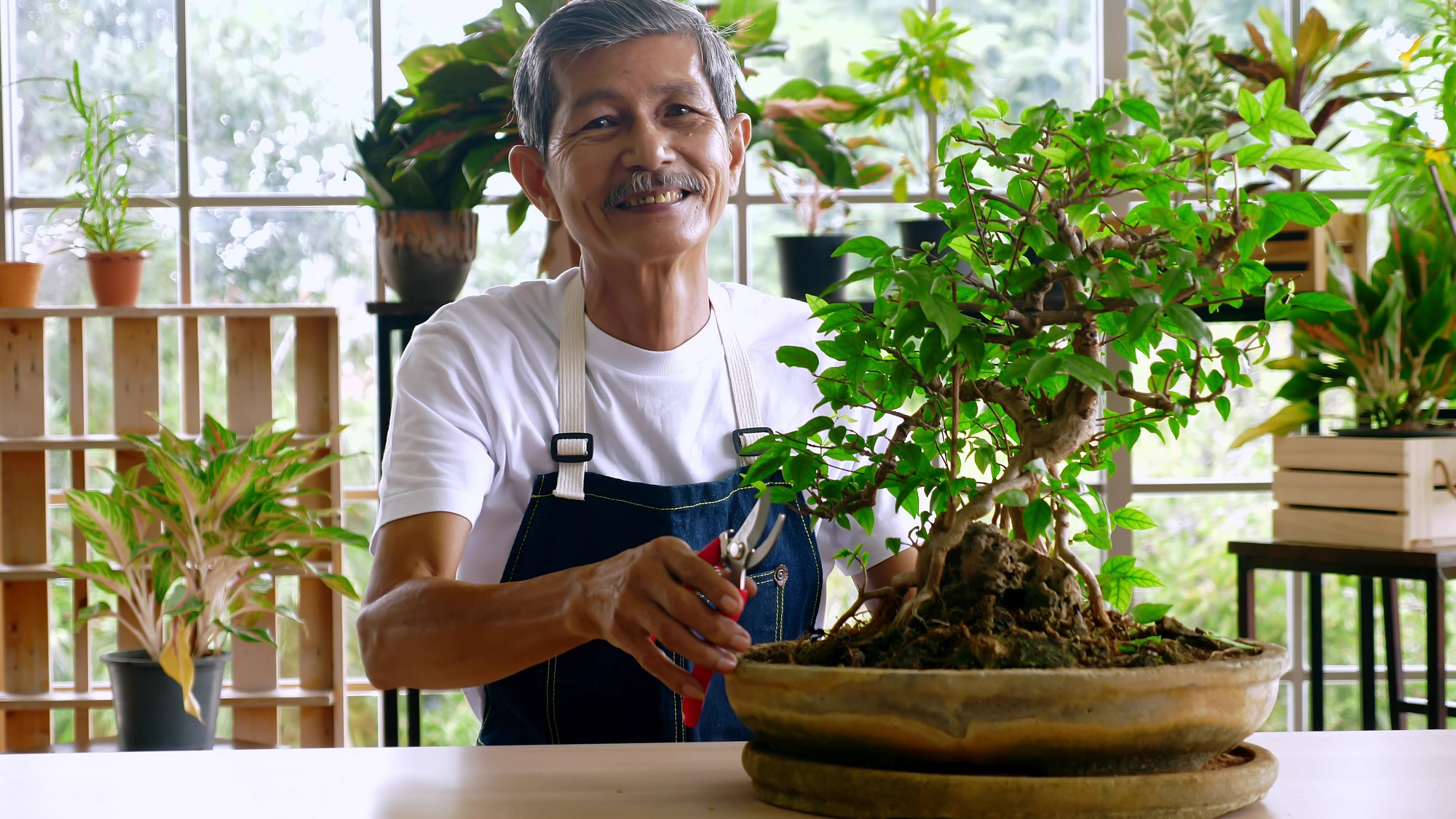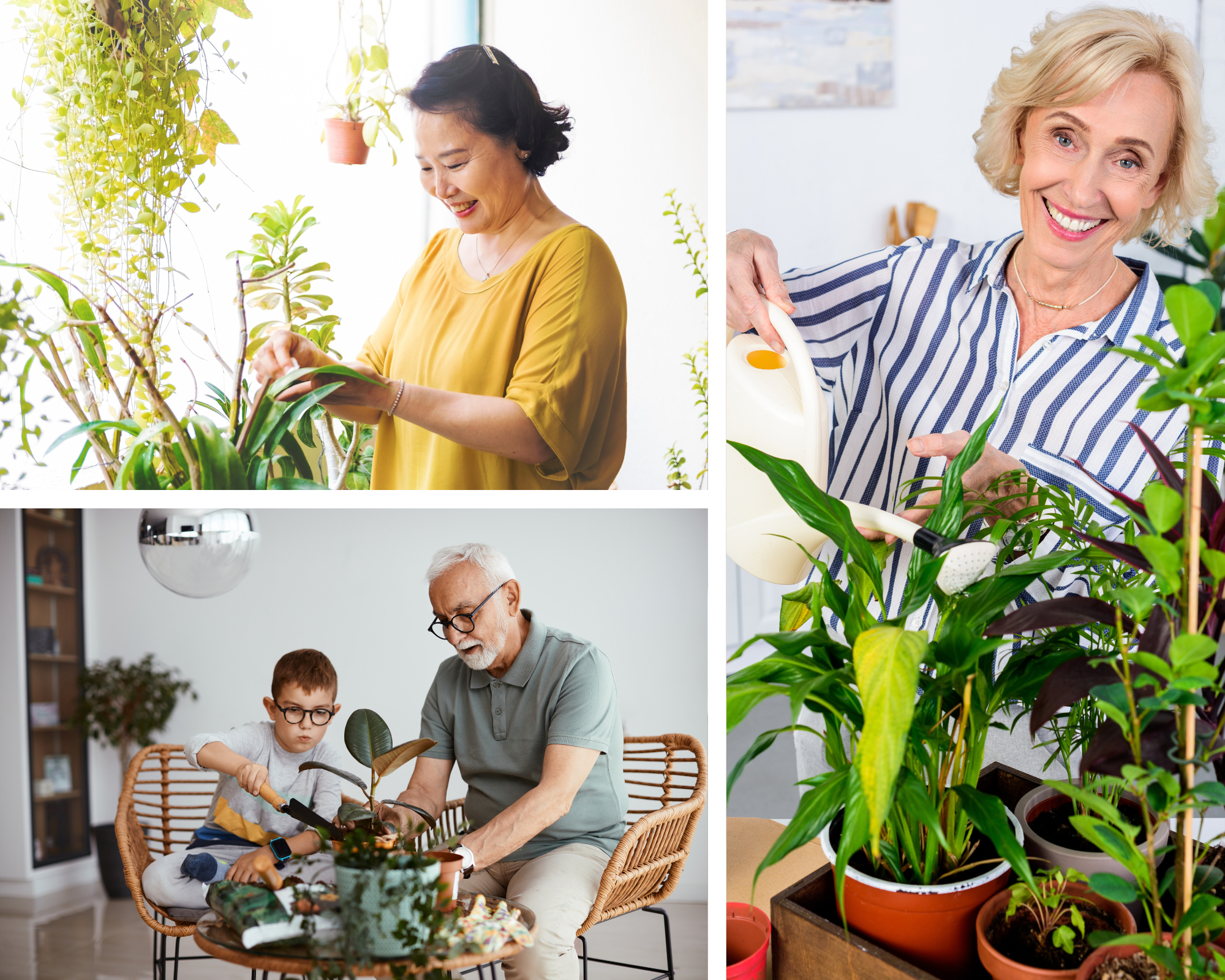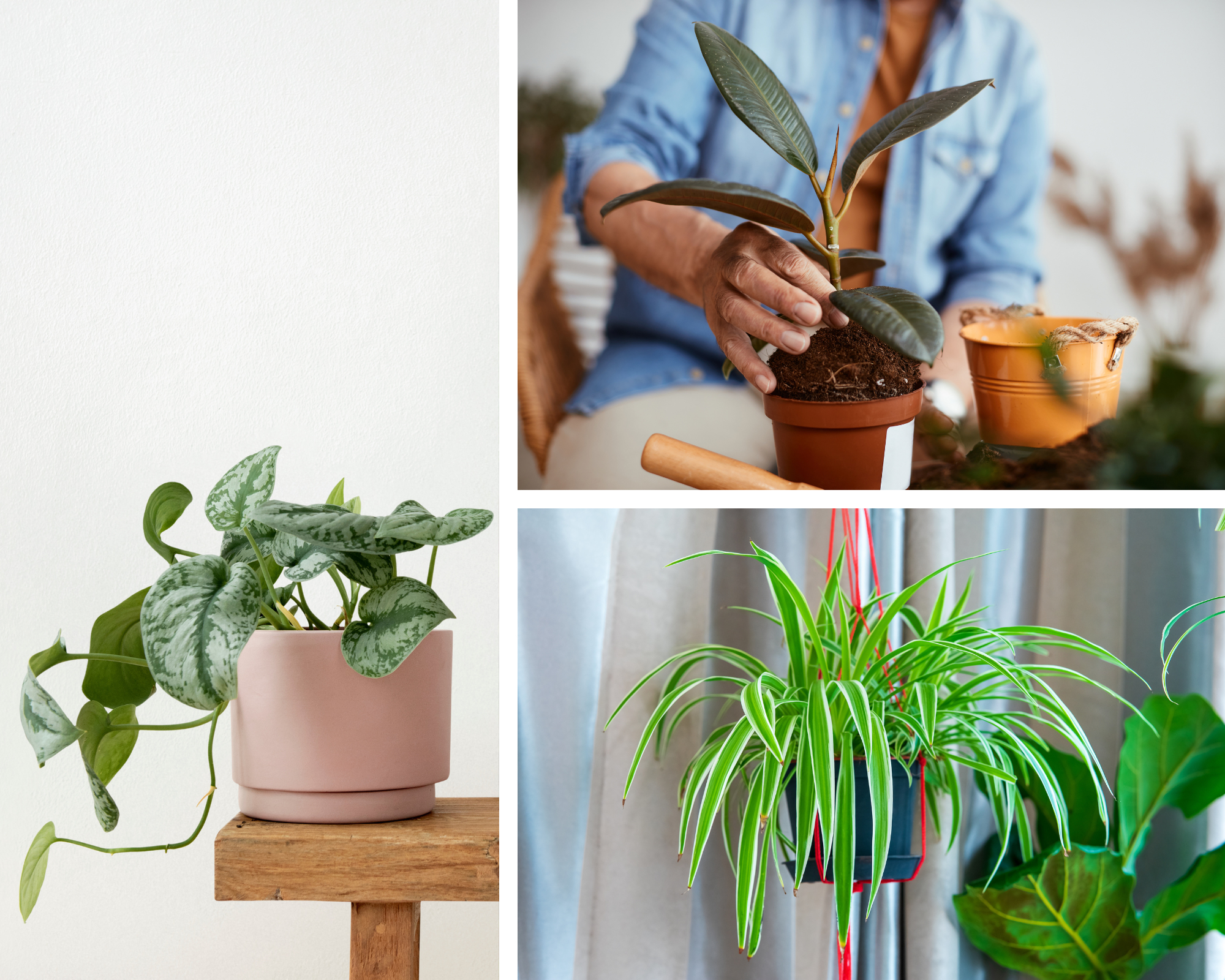
Why Seniors Should Keep Houseplants
March 7, 2023Houseplants are seeing their metaphorical day in the sun. Since 2020, houseplant sales have increased by 18%, and it’s with good reason. While individuals of all ages can benefit from this hobby, seniors in particular see great advantages in caring for plants. From emotional to physical impacts, the reasons why seniors should keep houseplants are bountiful.
A hobby that can be enjoyed year-round
Gardening as a whole is shown to have great impacts on one’s overall health. The act of caring for a plant boosts one’s mood, and taking care of a garden is light physical activity that is fantastic for seniors. When the weather turns for the worst, however, the hobby has to be put on hold until the spring.
But this doesn’t have to be the case. Keeping houseplants gives you a similar sense of satisfaction even in the dead of winter. In addition to being a great resource for hygge—which is fantastic for beating the winter blues—keeping houseplants has been shown to lower cortisol, blood pressure, and one’s heart rate. This means less stress in one’s day-to-day life.
Indoor gardening is accessible
Those who use wheelchairs or walkers might struggle to get around an outdoor garden. Indoor gardens, however, eliminate the need to crouch down to weed or tend to the plant. You can place your plants on an easy-to-reach countertop where it gets the sun it needs.
Caring for plants may reduce the risk of cognitive decline
According to one Australian study, those who spend time with plants have a reduced likelihood of developing dementia by 36%. The surprising statistic could be a result of a few different factors. Caring for something, such as a plant, stimulates the brain and encourages you to move. As you get more involved in the care of your indoor plants, your research will invigorate the learning side of your brain.
Enjoy cleaner air in your home
We all remember from elementary school that plants remove carbon dioxide from the air and convert it into oxygen. This is a job even your smallest houseplants can handle! In addition to clearing carbon dioxide, house plants have been shown to remove up to 87% of volatile organic compounds from the air every 24 hours.
Researchers have even found that rooms with plants have less dust and mold than other rooms due to the fact that plants act as natural filters for allergens. You’ll quite literally breathe easier with indoor plants nearby!
During the winter when the air is dry, houseplants evaporate water and increase the humidity in one’s home. This added moisture is wonderful for decreasing the rate of dry skin and sore throats. For those with respiratory problems, this is especially useful.
Best low-maintenance plants for seniors
Certain houseplants are easier to keep up with than others. If you’d like to start keeping indoor plants, consider some of these varieties. They are fairly sturdy and don’t require additional care past general watering and maintenance.
- Spider plant—despite the implications of the name, spider plants are lovely plants that grow quickly and easily. They do require regular watering and a lot of indirect sunlight, but that is it.
- Pothos—whether they are in direct sunlight or artificial lights, your pothos will flourish. They are trailing plants that are great if you want something to hang in a corner of your room.
- Rubber plant—more like trees, these plants can grow over eight feet tall. However, the size they grow depends on the size of the pot they’re in, so as long as you keep them in a smaller pot they won’t overtake your room.
- Peace lily—these beautiful flowers only need a small amount of indirect sunlight and water, making them perfect for those spots that don’t get high amounts of sun. One thing to note about lilies, however, is that they are extremely poisonous to cats.
Stay at home with the help of your caregiver
While you care for your indoor plants, don’t forget to get care for yourself too. If you need assistance with any activities of daily living—like cooking, running errands, or personal care—consider hiring the help of an at-home caregiver. For more information on how one could benefit you, give us a call at 773-274-9262.
Articles:
-
How to Use FaceTime: a Senior’s Guide
March 20th, 2024 -
The Best Organic Cleaning Products for Caregivers
March 19th, 2024 -
Celebrating St. Patrick’s Day with Seniors
March 14th, 2024 -
Intellectual Activities for Seniors to Keep their Brains Stimulated
March 13th, 2024 -
Tips for Communicating with Seniors with Hearing Loss
March 12th, 2024 -
How to Learn a New Language as an Older Adult
March 7th, 2024 -
Foods that Support Bone Health in Seniors
March 6th, 2024 -
A Note to Our Staff for Caregiver Appreciation Day
March 1st, 2024 -
The Importance of a Senior/Caregiver Bond
February 21st, 2024 -
Recreational Sports as Fitness for Seniors
February 27th, 2024 -
Exploring the Wonders of Reminiscence Therapy
February 15th, 2024 -
Staying Educated on Alzheimer’s Disease and Dementia Care
February 14th, 2024
Call Now! 773.274.9262






